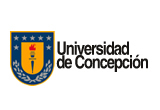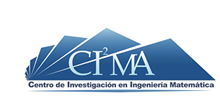News
The stay that Prof. Mauricio Sepúlveda is carrying out in research centers located in the vicinity of Paris extends until next August
Between February 26 and August 11, the sabbatical period currently being carried out by Dr. Mauricio Sepúlveda Cortés extends, specifically in the Laboratory of Mathematics and Applied Informatics (MaIAGE) of INRAE, a research center of the Université Paris-Saclay, located in the commune of Jouy-en-Josas, Versailles district, about 10 kilometers from the French capital.
The academician from the Department of Mathematical Engineering and member of the Center for Research in Mathematical Engineering, CI²MA, of the University of Concepción (UdeC), will take a break from his sabbatical between April 15 and 30 to participate in the Mathematics Conference of the South Zone that will be carried out in the UdeC itself. “Since INRAE is my official place of reception, I also must periodically go to INRIA in Saclay, located in the Palaiseau commune, next to the Polytechnic School (where I did my doctoral thesis) due to my link with the ANACONDA-INRIA project. through ECOS-ANID C20E03 for which I am responsible”.
“The original motivation for this project”, he explains, “was generated after participating in a virtual workshop called Kick-off ANACONDA-ECOS on July 1, 2021, organized by Romain Yvinec from U. de Tours, France, and by Erwan Hingant, at that time, a colleague from the U. of Bío-Bío and currently a professor at the U. of Amiens, France. This event was held in order to kick off the ECOS-ANID C20E03 project that I am currently coordinating”.
“After participating in this workshop, which was very interesting despite the confinement of the pandemic at that time”, the researcher details, “many bonds and common themes were generated with my colleagues in France, particularly with Beatrice Laroche from INRAE. Jouy-en-Josas and Frederique Clement from INRIA de Saclay”.
“There was then the opportunity, on the one hand, to already be in the period of taking a sabbatical semester, since at UdeC we have the right to request a sabbatical semester every seven years and the last one had been taken in 2015 to do a stay at the LNCC of Petrópolis-Brasil; and, on the other hand, there was a senior scholarship program, called the Jean D'Alembert Program of the U. de Paris-Saclay to which I applied, was selected, and gave me the opportunity to finance my stay. At the same time, Romain Yvinec from the University of Tours suggested that I finance my trip to France through the INRIA-ANACONDA project that he directs and of which I am a part as a member of the ECOS-ANID linked project".
Regarding the specific objectives of the sabbatical semester, Prof. Sepúlveda explains that these are aligned with those of the Jean D'Alembert Program project and aim to "contribute to the resolution of inverse problems in biology models that interest my colleagues from the University of Paris-Saclay. These models are in general systems of partial differential equations with highly non-linear and non-local terms. To give an example, Beatrice-Laroche de MaIAGE -INRAE is interested in models of cells and microbiotic organisms that participate in an intestinal crypt, and in the inverse problem of identifying a type of secreting cell based on knowledge about mother cell or progenitor cells behavior”.
“These objectives”, he highlights, “are coherent and linked to the specific objectives of the first stage of my Fondecyt 1220869 project (2022-2026), which consists of studying various inverse problems and in particular for biology models, and which in part It is what motivated me to propose this project and to establish ties with my French colleagues”.
“Dr. Sepúlveda's sabbatical in France is an excellent opportunity to make new collaborations and deepen existing ones, which will undoubtedly bring benefits not only for Dr. Sepúlveda but also for the rest of the community that makes up our center. Therefore, we wish Dr. Sepúlveda every success, hoping that he achieves all the objectives that he has set for himself”, Dr. Rodolfo Araya Durán, Director of CI²MA, emphasized.
In general terms, regarding the contribution that the completion of sabbatical periods represents in the context of an academic career, Prof. Sepúlveda affirms that “it is a great opportunity that the Universidad de Concepción gives its academicians, since it allows them to concentrate on topic research, learning about new methodologies, getting up to date and taking advantage of the opportunity to establish new links with other colleagues abroad, as well as participating in various events that a long-term research stay like this makes possible”.
“Already being here in France”, he exemplifies, "I was invited to participate in a congress in Seville that will take place at the end of March, on controllability and related topics, and then I will visit my collaborator Nicolas Torres from the ECOS-ANID project, who is currently doing a postdoc at the U. de Granada (Spain) to work on other mathematical models of biology based on non-local and non-linear PDEs (partial differential equations)”.
“It is true that the sabbatical semester is a family and financial sacrifice that affects me personally”, he pondes, “but it is worth it for the experience and professional enrichment, which is why I think that our university authorities, beyond just authorizing, how to encourage and further promote this opportunity among colleagues”.
.jpg)
.jpg)
.jpg)
Photo 1: Prof. Sepúlveda in his INRIA office in Saclay
Photo 2: Exterior view of INRAE in Jouy-en-Josas
Photo 3: Interior view of INRIA de Saclay

